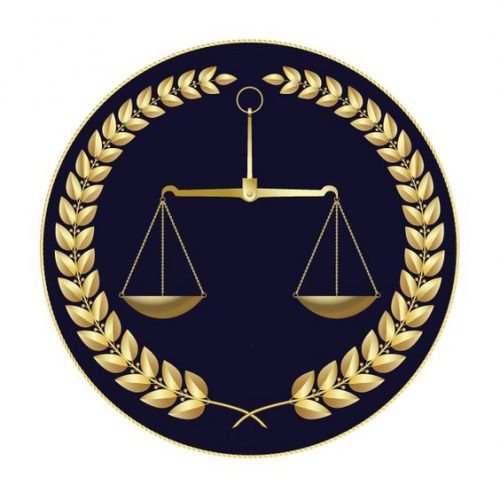Best Energy Regulatory Law Lawyers in Santa Cruz
Share your needs with us, get contacted by law firms.
Free. Takes 2 min.
List of the best lawyers in Santa Cruz, Bolivia
About Energy Regulatory Law in Santa Cruz, Bolivia
Energy Regulatory Law in Santa Cruz, Bolivia, governs the exploration, production, distribution, and consumption of energy resources, with a focus on electricity, natural gas, and hydrocarbon activities. This specialized field addresses how energy is generated, transmitted, commercialized, and consumed, balancing public interests, environmental considerations, and private enterprise. The legal framework aims to ensure a stable supply of energy, promote sustainable practices, and protect consumer rights while fostering investment.
Why You May Need a Lawyer
Navigating the complexities of Energy Regulatory Law in Santa Cruz can be challenging for both individuals and companies. Situations where you might need legal help include:
- Securing licenses or permits for energy projects - Negotiating energy supply contracts - Addressing disputes over rates, billing, or service interruptions - Understanding obligations under environmental laws and policies - Ensuring compliance with safety and technical regulations - Participating in public or private tenders for energy infrastructure - Facing inspections or sanctions from regulatory bodies - Managing land use and expropriation issues linked to energy infrastructure - Protecting your interests as a consumer or developer in policy changes
An experienced lawyer can interpret complex regulations, represent you in administrative hearings, and help avoid costly mistakes.
Local Laws Overview
Santa Cruz, as a key energy-producing region, is governed by a combination of national and municipal energy regulations. The primary legal framework for energy activities in Bolivia includes:
- The Hydrocarbon Law (Ley de Hidrocarburos 3058), which regulates exploration, production, transport, and commercialization of hydrocarbons - The Electricity Law (Ley de Electricidad 1604), setting the rules for power generation, transmission, distribution, and pricing - Environmental laws that set impact assessment and mitigation requirements for energy projects - Rules from the Autoridad de Fiscalización de Electricidad y Tecnología Nuclear (AETN) and Autoridad de Fiscalización de Hidrocarburos (ANH), the main regulatory agencies - Municipal norms in Santa Cruz that address land use, environmental permits, and local taxation related to energy infrastructure
Those involved in energy development or consumption must comply with a series of technical standards, reporting obligations, and tariff regimes established by these laws and local ordinances.
Frequently Asked Questions
What type of energy projects require a permit in Santa Cruz?
Most commercial energy activities, such as constructing power plants, oil or gas extraction, or large-scale distribution systems, require permits from national and local regulators. Even some renewable energy projects may need approvals depending on their size.
Who regulates energy utilities in Santa Cruz?
Energy utilities in Santa Cruz are regulated by national authorities like the AETN for electricity and the ANH for hydrocarbons. Local governments may oversee certain aspects such as consumer rights, land permits, and local compliance.
How are electricity and gas prices set?
Prices are generally set by national regulatory agencies, based on cost calculations, public policy, and market considerations. Rate adjustments must often be approved by the relevant authority.
What should I do if I have a dispute with an energy provider?
Start by filing a formal complaint with the provider. If unresolved, complaints can be escalated to the appropriate authority, such as the AETN for electricity. Legal assistance may be needed for complex cases.
What environmental rules apply to energy projects?
All energy projects must comply with environmental impact assessment (EIA) processes and mitigation measures spelled out by national and municipal laws. Failing to comply may result in fines or project suspension.
Can foreign investors participate in energy projects?
Yes, but they must adhere to Bolivian law regarding foreign investment, local partnerships, and regulatory approvals. Some strategic sectors may have additional restrictions or requirements.
Are renewable energy projects encouraged?
The Bolivian government has established policies to promote renewable energy, but projects must still follow the same permitting and regulatory processes as conventional energy sources.
What are the main risks of non-compliance?
Risks include administrative sanctions, fines, suspension of permits, or even criminal liability in cases of environmental harm or public safety violations.
How can I check if a property is affected by an energy easement?
Consult the municipal land registry and the relevant regulatory authority to determine if there is an easement or restriction due to existing or planned energy infrastructure.
Where can I find official information about energy regulations?
Official publications and resolutions are typically available on the websites of the AETN and ANH, as well as in the Gaceta Oficial del Estado Plurinacional de Bolivia.
Additional Resources
If you need further guidance on Energy Regulatory Law in Santa Cruz, consider contacting:
- Autoridad de Fiscalización de Electricidad y Tecnología Nuclear (AETN) - Autoridad de Fiscalización de Hidrocarburos (ANH) - Secretaría de Energía de la Gobernación de Santa Cruz - Local bar associations specializing in energy and environmental law - Universidad Autónoma Gabriel René Moreno - Programs in law and engineering - Chambers of commerce and industry with an energy focus
Next Steps
If you require legal advice or representation regarding energy matters in Santa Cruz, consider these steps:
1. Define your specific legal issue, such as permits, disputes, or compliance. 2. Gather all relevant documentation, including contracts, permits, and official notices. 3. Contact a qualified lawyer with experience in energy regulatory law and familiarity with local Santa Cruz procedures. 4. Schedule a consultation to discuss your case, potential risks, and possible solutions. 5. Follow your lawyer’s advice to engage with authorities, negotiate with other parties, or pursue legal remedies.
By taking a proactive approach with knowledgeable legal support, you can better navigate the energy legal landscape in Santa Cruz, Bolivia.
Lawzana helps you find the best lawyers and law firms in Santa Cruz through a curated and pre-screened list of qualified legal professionals. Our platform offers rankings and detailed profiles of attorneys and law firms, allowing you to compare based on practice areas, including Energy Regulatory Law, experience, and client feedback.
Each profile includes a description of the firm's areas of practice, client reviews, team members and partners, year of establishment, spoken languages, office locations, contact information, social media presence, and any published articles or resources. Most firms on our platform speak English and are experienced in both local and international legal matters.
Get a quote from top-rated law firms in Santa Cruz, Bolivia — quickly, securely, and without unnecessary hassle.
Disclaimer:
The information provided on this page is for general informational purposes only and does not constitute legal advice. While we strive to ensure the accuracy and relevance of the content, legal information may change over time, and interpretations of the law can vary. You should always consult with a qualified legal professional for advice specific to your situation.
We disclaim all liability for actions taken or not taken based on the content of this page. If you believe any information is incorrect or outdated, please contact us, and we will review and update it where appropriate.














